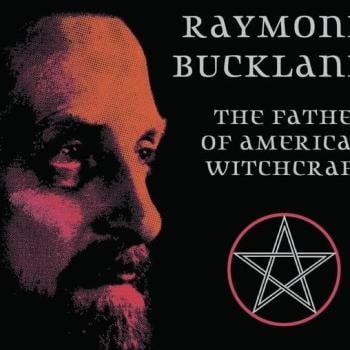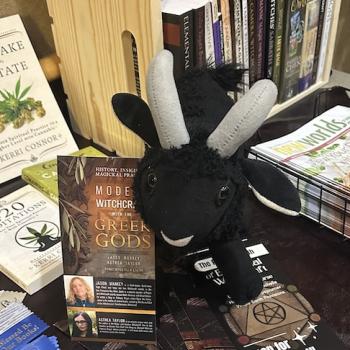 Living in Northern California can be like living in a bubble. It’s a very socially progressive area of the country, and I usually take it for granted that my neighbors are a part of this century. This morning that fantasy was interrupted while listening to a call-in-show on public radio. There’s nothing like hearing from a “good Christian” whose religion is being “threatened” by gay marriage. Such arguments are hair-brained and stupid, and having to hear such nonsense immediately put me on edge.
Living in Northern California can be like living in a bubble. It’s a very socially progressive area of the country, and I usually take it for granted that my neighbors are a part of this century. This morning that fantasy was interrupted while listening to a call-in-show on public radio. There’s nothing like hearing from a “good Christian” whose religion is being “threatened” by gay marriage. Such arguments are hair-brained and stupid, and having to hear such nonsense immediately put me on edge.
What I despise most about those “arguments” is that they are created by the selective reading of an extremely old and outdated text. Everyday I give thanks to the gods that my religion was not built on the whims of a bunch of dudes who lived 2000 years ago.* I don’t begrudge people who follow the Bible or the Koran, such texts certainly have the ability to give meaning to people’s lives. However, I am often bothered by how people interpret those texts and to some degree live in thrall of them.
My own practice includes a Book of Shadows that’s been handed down to me, but that text does not dictate how I view others. It contains only one rule, and even then that rule is open to a large degree of interpretation. My BoS is mostly ritual, there’s no comparison to something like the Bible. If anything it’s more like a hymnal or a Book of Prayer with a smattering of myth. It contains no theology and allows me to approach the gods on my own terms. My BoS has also been added to and subtracted to over the years. No one suffers under the delusion that its contents are written in stone somewhere between the worlds.
My faith rejects absolutes and encourages self-discovery. No one has ever discouraged me from researching Wiccan history or figuring out exactly where our text(s) comes from. My beliefs are not in conflict with science. I feel that the lack of a “sacred text” gives Pagan faiths an edge over monotheistic ones, and better prepares us for today’s world.
Context has been stripped away from books like the Bible Back when I was in school and reading classic pieces of literature my teachers always emphasized to me the context in which certain books were written. Gulliver’s Travels wasn’t really just an adventure story, it was satire, and realizing that made the book more enjoyable. I’ve never understood why so many believers refuse to put the Bible into its place in history.
Take for example the dietary rules articulated in the book Leviticus. In one instance the Hebrew God condemns the eating of certain ocean creatures. Today this seems rather arbitrary (my wife swears calamari is delicious) but 2600 years ago it made a lot more sense. Squid was far more likely to make a person sick than fish. Today we have refrigerators and have a much better handle on how to prepare food. The person who wrote Leviticus most likely did so with the best of intentions and wrote it as he (or she) understood the world at that moment. If the early Hebrews had had access to the modern freezer Leviticus would be a lot different. But that’s something that nobody talks about, because the Bible is not a reflection of humanity but the thoughts of a particular god.
The New Testament doesn’t fair much better either. The Book of Revelation for instance is not about the judgement of a wrathful and jealous deity. It’s about the place of Christians in the Roman Empire at the end of the First Century. Taking away the context of Revelation turns the entire book into an Evangelical Christian fantasy. One can’t read Revelation (or any other part of the Bible) intelligently without understanding what was going on in the world when it was written.
Paganism has no Prophets Part of the problem with putting religious texts into their proper place and time is they are generally considered to be written by “prophets.” I really like Gerald Gardner and Doreen Valiente, but they weren’t prophets. Perhaps some of what they wrote or believed was divinely inspired, but that inspiration was filtered through their humanness. Gardner was often full of BS, and that’s something he likely would admit to if he were still around.
The people who helped establish my religious tradition were simply people doing the best they could. They had foibles and faults just like the rest of us, and we are all just as capable of touching the divine as they were. The Apostle Paul of the Christian tradition was a tremendous writer, but he was the writer, not the god he served. Anything in his letters that was divinely inspired was filtered through his experiences and prejudices. The idea of prophets as exalted humans obscures this fact and makes it harder to throw out antiquated ideas.

The first is that texts like the Bible were written long before the modern scientific process. The person who assembled the Book of Genesis wrote down a bunch of different mythologies that offered explanations for the origins of the Earth. (That’s why there are two creation stories in Genesis.) The individual who wrote those stories never imagined that 3000 years later people would still be reading them. Those stories were written down when people still believed that the Earth was flat and that demons caused disease. We can’t mention that context because a book like Genesis was written by a prophet and is therefore inerrant.
Inerrancy offers limited avenues for growth and change. We understand the world so much better than we did 2000 years ago, but inerrancy does not allow people to apply that knowledge to their holy texts. Most every Pagan I know looks at mythology as something that illustrates an idea, not as a literal telling of how the world works. In my own practice I honor the Goddess and the God on the Wheel of the Year and honor the Horned One’s yearly sacrifice so that he may be reborn. I certainly don’t think this happens in a literal sense, it’s simply suggestive of how the world works. Things die and out of that new things are born.
One of my biggest pet peeves is when people speak in absolutes, not allowing for anything in between right and wrong. Unchanging holy books are absolutes, and as a result are often used to justify deplorable behavior and actions. There are many enlightened followers of books such as the Bible who realize things like context and the fallibility of human writers . . . . . and then there are people like “good Christian” clinging to an outdate document that doesn’t take into account our present circumstances.
Thank the gods for a flexible, adaptable, and enlightened approach to modern spirituality. May we never have a Bible and may we always be open to society’s inevitable changes.
________
*The various books of the Bible have various dates of composition, and certainly some of the stories within it go back over 3000 years.


















